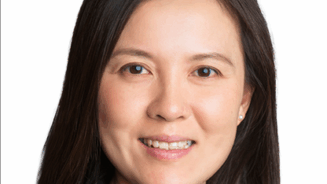Pugh believes Singapore has a long way to go in terms of catching up with the UK, Australia and the US. “I think Hong Kong is a lot further along in its financial advisory market evolution than Singapore.”
That’s not to say there isn’t also room for improvement in Hong Kong. “More transparency is needed in the marketplace,” says Sutton. “There are still a lot of advisory groups selling investment-linked assurance scheme (ILAS) policies and then investing into complex and illiquid funds. This means they are double-dipping on fees, with significant corresponding exit penalties.”
More regulation, transparency and fee and commission disclosure are needed, he says. “The Hong Kong regulators are trying to go down the same route the UK has with RDR but they are probably being met with resistance,” Sutton says. “Advisers are used to selling products that pay large commissions, so for them it will be a big shift.”
Pugh expects Singapore will introduce full commission disclosure eventually but does not expect the city state to implement something like RDR.
“I just don’t see it happening. Full commission disclosure is needed but they haven’t done it because it would tie the industry up overnight,” says Pugh.
He views the Singapore market as a pyramid. “At the top are the private banks. If you’ve got around £10m to invest you’ll get some decent service, if you’re lucky. Down the bottom, it’s still all about cold calling. It drives me crazy but it’s obviously effective so they keep doing it. It’s all about hidden commissions and opaque, expensive products.
“The Fry Group doesn’t do any of that. We challenge the private banks.”
Despite operating in different time zones, the mind-set across The Fry Group’s offices in Europe and Asia is the same. “We offer a three-in-one service of tax, wealth and estate planning. This allows us to give an integrated financial planning service to our clients. We don’t take part in any cold calling. Our business has been built on referrals and giving quality advice,” Sutton says.
Recruitment challenges
The Fry Group’s business model means it can be challenging to find new recruits. “We’re looking for someone who wants to get into the industry as a financial planner and help people with their finances,” says Sutton.
“Doing the right thing is just part of being a member of The Fry Group team,” Pugh adds. “Recruitment is always a challenge for us because our model is so different to others in the market.”
One way in which the group overcomes this issue is by bringing in what are effectively financial adviser apprentices.
“Typically, someone will join from the UK and work with us for two years before stepping up to adviser status. At that point they will get to have an allocation of clients. We offer a lot of support to make sure they become a successful adviser.”
A client of The Fry Group is traditionally a British expat worth between £4m-5m who would be comfortable trusting the company with £1m, Pugh explains. “Typically, a client with £1m will be charged 1% initial, 1% for the advice and implementation and 1% per annum.” The group’s fee structure is global and decreases based on assets invested. “It starts at 3% on the first £500,000, 2% on the next £500,000 and 1% over £1m,” he says.
“Everything we do is clean, open-ended and without all the exit penalties,” adds Sutton. “We provide holistic financial planning, which can include retirement planning, investments and regular savings.”
Consistency counts
Offering consistency is one of The Fry Group’s strongest assets in an ever-changing world. With their fee-based model, neither office has been significantly affected by regulatory shifts that have been acutely felt by others in their respective markets.




